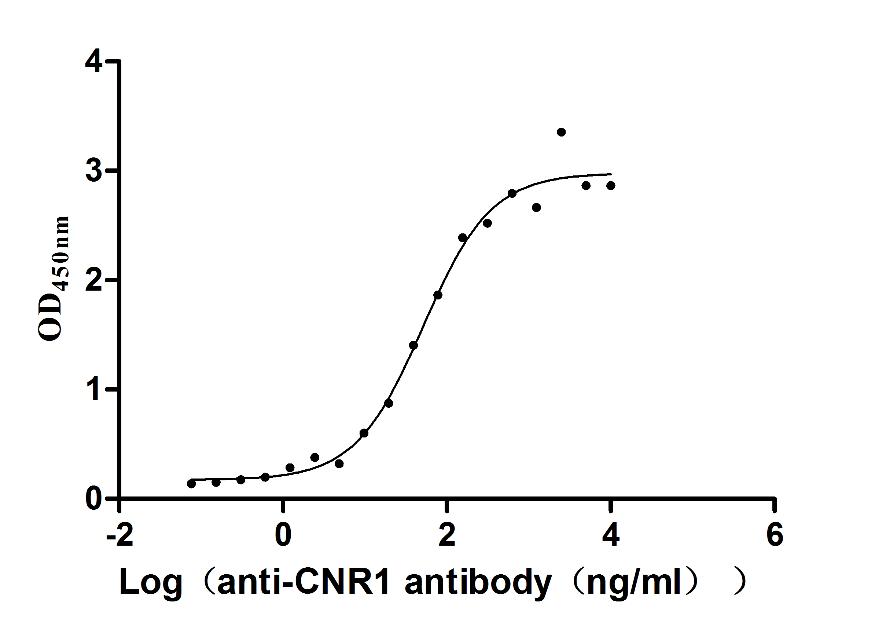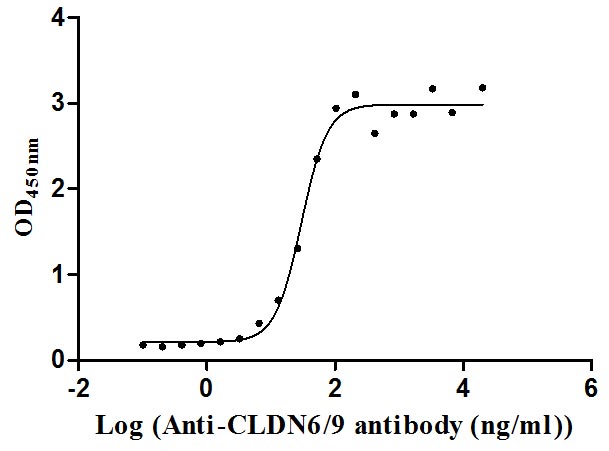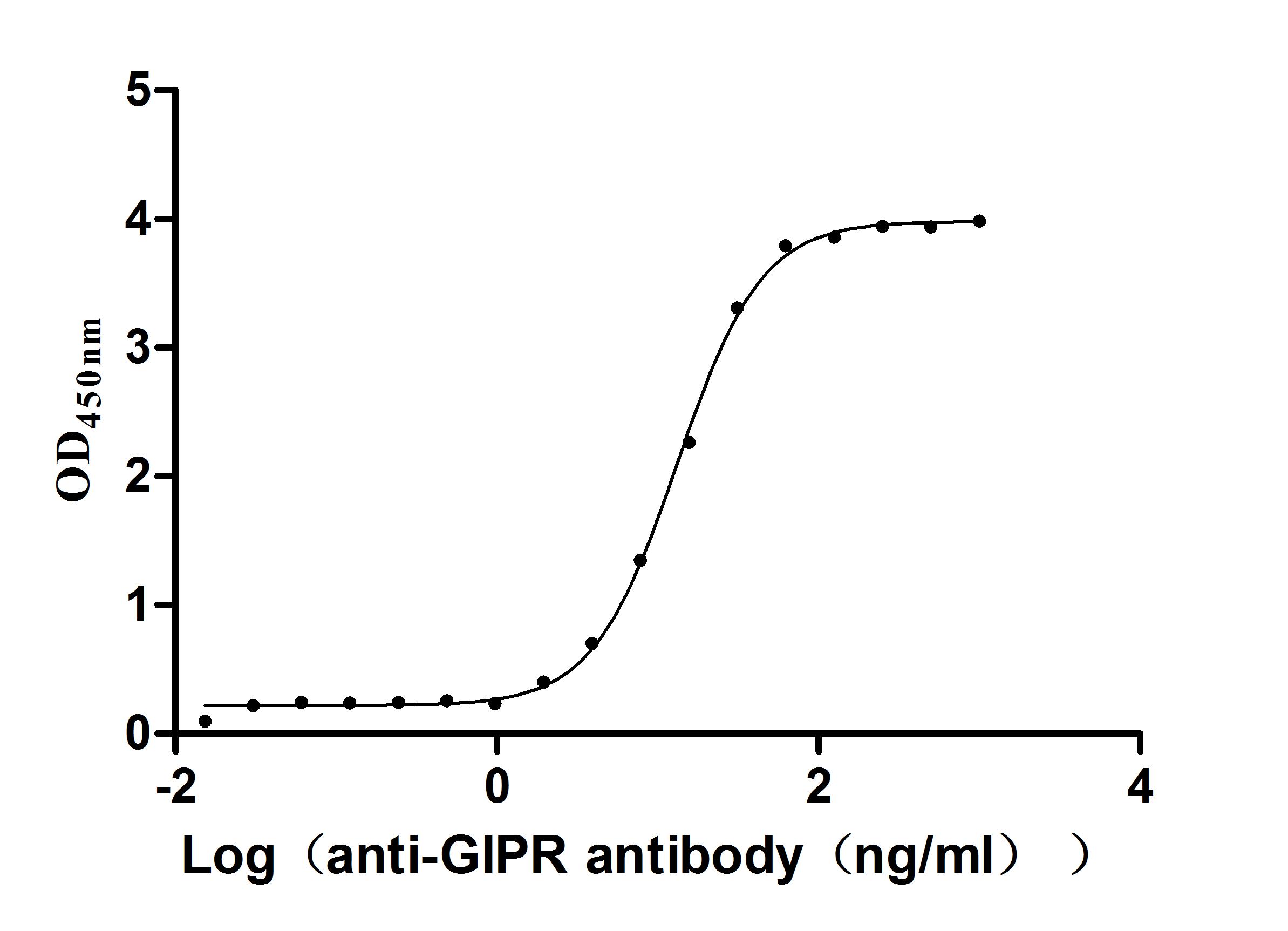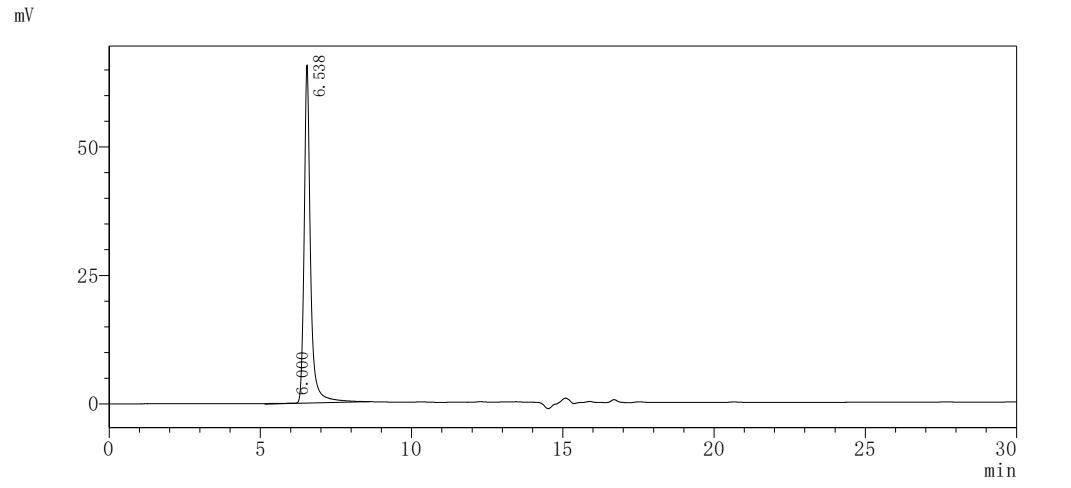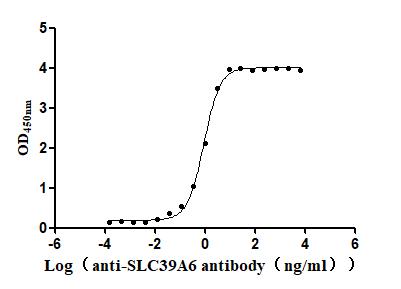Recombinant Mouse Retinoic acid receptor RXR-alpha (Rxra)
-
中文名称:小鼠Rxra重组蛋白
-
货号:CSB-YP020612MO
-
规格:
-
来源:Yeast
-
其他:
-
中文名称:小鼠Rxra重组蛋白
-
货号:CSB-EP020612MO
-
规格:
-
来源:E.coli
-
其他:
-
中文名称:小鼠Rxra重组蛋白
-
货号:CSB-EP020612MO-B
-
规格:
-
来源:E.coli
-
共轭:Avi-tag Biotinylated
E. coli biotin ligase (BirA) is highly specific in covalently attaching biotin to the 15 amino acid AviTag peptide. This recombinant protein was biotinylated in vivo by AviTag-BirA technology, which method is BriA catalyzes amide linkage between the biotin and the specific lysine of the AviTag.
-
其他:
-
中文名称:小鼠Rxra重组蛋白
-
货号:CSB-BP020612MO
-
规格:
-
来源:Baculovirus
-
其他:
-
中文名称:小鼠Rxra重组蛋白
-
货号:CSB-MP020612MO
-
规格:
-
来源:Mammalian cell
-
其他:
产品详情
-
纯度:>85% (SDS-PAGE)
-
基因名:
-
Uniprot No.:
-
别名:Rxra; Nr2b1; Retinoic acid receptor RXR-alpha; Nuclear receptor subfamily 2 group B member 1; Retinoid X receptor alpha
-
种属:Mus musculus (Mouse)
-
蛋白长度:Full length protein
-
表达区域:1-467
-
氨基酸序列MDTKHFLPLD FSTQVNSSSL NSPTGRGSMA VPSLHPSLGP GIGSPLGSPG QLHSPISTLS SPINGMGPPF SVISSPMGPH SMSVPTTPTL GFGTGSPQLN SPMNPVSSTE DIKPPLGLNG VLKVPAHPSG NMASFTKHIC AICGDRSSGK HYGVYSCEGC KGFFKRTVRK DLTYTCRDNK DCLIDKRQRN RCQYCRYQKC LAMGMKREAV QEERQRGKDR NENEVESTSS ANEDMPVEKI LEAELAVEPK TETYVEANMG LNPSSPNDPV TNICQAADKQ LFTLVEWAKR IPHFSELPLD DQVILLRAGW NELLIASFSH RSIAVKDGIL LATGLHVHRN SAHSAGVGAI FDRVLTELVS KMRDMQMDKT ELGCLRAIVL FNPDSKGLSN PAEVEALREK VYASLEAYCK HKYPEQPGRF AKLLLRLPAL RSIGLKCLEH LFFFKLIGDT PIDTFLMEML EAPHQAT
-
蛋白标签:Tag type will be determined during the manufacturing process.
The tag type will be determined during production process. If you have specified tag type, please tell us and we will develop the specified tag preferentially. -
产品提供形式:Lyophilized powder
Note: We will preferentially ship the format that we have in stock, however, if you have any special requirement for the format, please remark your requirement when placing the order, we will prepare according to your demand. -
复溶:We recommend that this vial be briefly centrifuged prior to opening to bring the contents to the bottom. Please reconstitute protein in deionized sterile water to a concentration of 0.1-1.0 mg/mL.We recommend to add 5-50% of glycerol (final concentration) and aliquot for long-term storage at -20℃/-80℃. Our default final concentration of glycerol is 50%. Customers could use it as reference.
-
储存条件:Store at -20°C/-80°C upon receipt, aliquoting is necessary for mutiple use. Avoid repeated freeze-thaw cycles.
-
保质期:The shelf life is related to many factors, storage state, buffer ingredients, storage temperature and the stability of the protein itself.
Generally, the shelf life of liquid form is 6 months at -20°C/-80°C. The shelf life of lyophilized form is 12 months at -20°C/-80°C. -
货期:Delivery time may differ from different purchasing way or location, please kindly consult your local distributors for specific delivery time.Note: All of our proteins are default shipped with normal blue ice packs, if you request to ship with dry ice, please communicate with us in advance and extra fees will be charged.
-
注意事项:Repeated freezing and thawing is not recommended. Store working aliquots at 4°C for up to one week.
-
Datasheet :Please contact us to get it.
靶点详情
-
功能:Receptor for retinoic acid that acts as a transcription factor. Forms homo- or heterodimers with retinoic acid receptors (RARs) and binds to target response elements in response to their ligands, all-trans or 9-cis retinoic acid, to regulate gene expression in various biological processes. The RAR/RXR heterodimers bind to the retinoic acid response elements (RARE) composed of tandem 5'-AGGTCA-3' sites known as DR1-DR5 to regulate transcription. The high affinity ligand for retinoid X receptors (RXRs) is 9-cis retinoic acid. In the absence of lig...显示更多
-
基因功能参考文献:
- Neuronally-directed effects of RXR activation in a mouse model of Alzheimer's disease PMID: 28205585
- Loss of RXRA is associated with Non-Small Cell Lung Cancer. PMID: 28923935
- Mice lacking the RXR-alpha receptor develop spontaneous melanoma following a single ultraviolet radiation exposure compared to mice with functional RXR-alpha receptor. PMID: 29121869
- The primary aim of the present study was to investigate the potential of Nur77 in Amyloid betainduced neuron apoptosis, and to evaluate the effect of RXRalpha nuclear export inhibition on neuronal apoptosis. PMID: 28627642
- These data suggest that RXRs may be of crucial importance in the mechanism of allergic asthma and that the novel RXR partial agonist NEt-4IB may be a promising candidate for the treatment of allergic airway inflammation and airway hyperresponsiveness in a model of allergic asthma. PMID: 28114934
- The study shows that FXR/RXR regulates Chop expression in a mouse model of steatohepatitis, providing novel insights into pathogenesis of this disorder. PMID: 28895119
- These results suggest a mechanism to establish RXR therapeutic targets with significance in neurodegeneration. PMID: 27051978
- interaction of Wnt and RXR-alpha pathways in hepatocyte development and hepatocellular carcinoma PMID: 25738607
- This uncovered a novel RXR-dependent innate immune regulatory pathway, suggesting that downregulation of RXR expression or RXR antagonist treatment benefits host antiviral response, whereas RXR agonist treatment may increase risk of viral infections. PMID: 25417649
- The expression and binding of RXRalpha to CYP3A genes in liver was sex-dependent and regulated by growth hormone secretion. PMID: 25451687
- The depletion of retinoic acid and the inhibition of RXRalpha function in hepatic tumors involve more complex mechanisms besides the activation of RAS/ERK pathway. PMID: 25218146
- These observations suggest that beta-apo-13-carotenone regulates RXRalpha transcriptional activity by inducing the formation of the "transcriptionally silent" RXRalpha tetramer. PMID: 25324544
- RXRs modulate post-UVR survival of dermal fibroblasts in a "non-cell autonomous" manner, underscoring their role in immune surveillance, while independently mediating post-UVR melanocyte survival in a "cell autonomous" manner PMID: 24810760
- Drupanin, a component of BGP, is a novel RXR agonist with slight PPARgamma agonistic activity. PMID: 24972164
- two models of cholestasis identify common and injury-specific roles for RXRalpha heterodimers and the functional relevance of an intact RXRalpha-DNA-binding domain in the hepatocytic adaptive cholestatic response PMID: 24120911
- This demonstrates the importance of RXRalpha in regulating inflammation in acute colitis and also identifies RXRalpha expression as a new consideration when developing treatment for acute colitis. PMID: 24146318
- RXRA and RXRB display specific roles in modulating T3-dependent regulation of thyrotropin releasing hormone. PMID: 23896434
- RXRalpha appears to be one of the most widely distributed transcriptional regulators in mouse liver and is engaged in determining sexually-dimorphic expression of key lipid-processing genes. PMID: 23977068
- These results illustrate a broadly applicable strategy for understanding the host response to infection in vivo and identify Rxra as the hub of a gene network controlling antileishmanial resistance. PMID: 24034621
- MiR-128-2 inhibits the expression of ABCA1, ABCG1 and RXRalpha directly through a miR-128-2-binding site within their respective 3'untranslated regions. PMID: 23990020
- Downregulation of retinoid X receptor alpha is associated with colitis-associated cancer. PMID: 23585425
- Downregulation of RXRalpha, a nuclear receptor that can suppress NF-kappaB activity, mediates the elevation of COX2 expression and PGE2 production in senescent macrophages. PMID: 24051096
- RXRalpha dictates the expression of genes that regulate RNA processing, translation, and protein folding illustrating the novel roles of hepatic RXRalpha in post-transcriptional regulation. PMID: 23166811
- The expression of dominant-negative RAR (dnRAR) in the forebrain down-regulated the expression of RARbeta, a target gene of RAR/RXR, indicating that dnRAR mice exhibit dysfunction of the RAR/RXR signaling pathway. PMID: 22316320
- High-grade prostate intraepithelial neoplasia develops in 79% of RXRalpha prostate null mice fed a new western diet containing high fat and low fiber). PMID: 22314496
- There are differential regulatory roles for hepatic RXRalpha, both in basal and inflammatory states, suggesting new and complex multidomain roles for RXRalpha in regulating hepatic gene expression. PMID: 22098603
- Studies indicate the cooperative effect between HPV16E6E7 expression and the lack of RXRalpha in cervical cancer development. PMID: 22138104
- Using the light-induced retinal degeneration (LIRD) mouse model, which provides a unique platform for exploring the mechanisms underlying neuritogenesis, we found that retinoid X receptors (RXRs) control neuritogenesis. PMID: 21940995
- RXRalpha regulates mouse keratinocyte and melanocyte homeostasis following acute ultraviolet ray exposure PMID: 20944655
- Data show that in the absence of keratinocytic RXRalpha, in combination with mutant Cdk4, cutaneous melanoma was generated that metastasized to lymph nodes in a bigenic mouse model. PMID: 20629968
- The heart phenotypes of Rxra mutants are very similar and are characterized by a prominent defect in ventricular compact zone growth. PMID: 21138976
- Modulation of endogenous RXRalpha in beta-cells may be a new therapeutic approach for improving impaired insulin secretion in type 2 diabetes. PMID: 20798333
- analysis of the VDR/RXR cistrome in osteoblast and insight into the actions of the vitamin D hormone PMID: 20171278
- Mice lacking RXRalpha in myeloid cells exhibit reduced levels of CCL6 and CCL9, impaired recruitment of leukocytes to sites of inflammation, and lower susceptibility to sepsis. PMID: 20498053
- Deregulation of growth factor, circadian clock, and cell cycle signaling in regenerating hepatocyte RXRalpha-deficient mouse livers. PMID: 20035057
- Effects of retinoic acid receptor beta (RARbeta) and retinoid X receptor alpha (RXRalpha) on the regulation of the alpha(2)(I) collagen promoter. PMID: 12054477
- in response to retinoic acid and in a manner requiring the activity of RXRalpha, secretes trophic factors which drive fetal cardiomyocyte proliferation and promote ventricular chamber morphogenesis PMID: 12297106
- role in coenzyme Q metabolism PMID: 12581641
- testosterone has a negative impact on retinoid signaling when the level of RXRalpha is low, which may in turn reduce the expression of the CYP450 genes. PMID: 12746291
- loss or reduction of RXRalpha activity is associated with prostate tumorigenesis PMID: 12750559
- Data report the separation of RXR homo- and heterodimerization as an essential step towards the elucidation of the roles of RXR homo- and heterodimers in retinoid-rexinoid signaling. PMID: 14560013
- results reveal molecular and structural features that impact on the ligand-dependent interaction of the RAR/RXR heterodimer with nuclear receptor coactivators PMID: 15528208
- liver X receptors/RXR alpha agonists may be exploited to enhance innate immunity to bacterial pathogens that induce apoptotic programs as a strategy for evading host responses PMID: 15601766
- Retinoic acid modulates the expression of RXRalpha in brown adipose tissue, suggesting auto regulation of the retinoid effect on the thermogenic system. PMID: 15646024
- VDR and RXR have roles in 1,25(OH)2D3-induced transactivation in intact osteoblasts PMID: 15647825
- the retinoid X receptor alpha knockout (RXRalpha-/-) embryo displays a malformed epicardium PMID: 15861408
- in adipocytes RXRalpha is essential for lipogenesis PMID: 15936932
- role of RXRalpha in phase II enzyme-mediated detoxification of acetaminophen PMID: 16157696
- Retinoid X receptor ablation in adult mouse keratinocytes generates an atopic dermatitis triggered by thymic stromal lymphopoietin. PMID: 16199515
- RXR alpha plays an important post-developmental role in the regulation of adaptive immune responses, and provides a plausible link between nutritional environment and the type of adaptive response that results from immunization. PMID: 16259011
收起更多
-
亚细胞定位:Nucleus. Cytoplasm. Mitochondrion.
-
蛋白家族:Nuclear hormone receptor family, NR2 subfamily
-
组织特异性:Expressed in macrophages (at protein level).
-
数据库链接:
KEGG: mmu:20181
STRING: 10090.ENSMUSP00000076491
UniGene: Mm.24624


